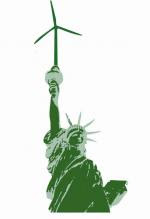 Beyond BP
Beyond BPRestoring the gulf will take decades. But we can start getting off oil now.
By MICHAEL BRUNE, Executive Director of the Sierra Club.
It looks a lot worse out on the water than it does on TV. The Gulf of Mexico is literally a sea of oil, with countless orange-brown waves of sludge washing into its beautiful salt marshes. We passed oil-drenched pelicans and dolphins, with no rescue crews anywhere nearby. It was heartbreaking.
If we can find ways to get from Point A to Point B without financing terrorism and cooking the planet, there's no reason we can't finally move—as BP's 2000 corporate rebranding effort put it—"beyond petroleum."
Here's the good news: When the Exxon Valdez ran aground 21 years ago, we didn't have the wealth of alternatives to oil that are available today. For example, we could save more than 25 percent of the oil that's extracted from the Gulf of Mexico if we used alternate energy sources for home heating and electricity production. We could save more than the total amount of oil produced in the gulf (or all the oil we import from the entire Persian Gulf) by moving freight from highways to railways and repowering commercial vehicles with cleaner fuels.
As individuals, there is much that we can and must do to cut oil consumption, starting with walking, biking, and riding transit whenever possible. The single most effective thing we can do as a country to get off oil, however, is to electrify transportation. The days of tinkering around with tiny increases in fuel economy should be long gone.
The full article is here.













